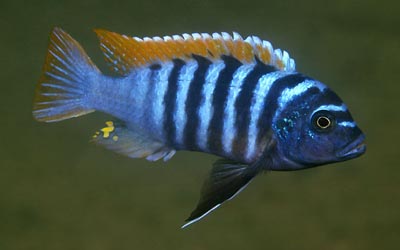|
For years it was thought that the huge biodiversity in Africa’s Rift lakes was in good shape and unlikely to be affected by the burgeoning human population; the simple reason being that no industry had established on the lakes’ shores. Industrial pollution and loss of habitat is the main cause of biodiversity loss around the world but the lack of an industrial-sized infrastructure in the countries around the lakes discouraged prospecting entrepreneurs from setting up camp. However, the paucity of jobs and income more or less forced the riparian communities to increase their fishing efforts. This massive increase naturally brought an enormous reduction in fish stocks. Since the early 1970s beach seines have systematically been employed by almost every village along the shores of Lake Malawi and by 1985 the number of nets had increased 50-fold and the fishing efforts even more, but the amount of landed fish had actually decreased. |
 In
the early 1990s fish stocks in the southeastern arm of the lake and those
of Lake Malombe had collapsed. At present there is still no regulation
in force even though beach seines and small-meshed gill nets are forbidden.
When I visited the lake in the late 1980s beach seines were very prevalent
and the catches, even strongly reduced from what they were 10 years earlier,
were substantial. Nowadays beach seines are rare in the South East Arm
of Lake Malawi, not because the authorities finally caught up with applying
law, but simply because there are no fish left. In
the early 1990s fish stocks in the southeastern arm of the lake and those
of Lake Malombe had collapsed. At present there is still no regulation
in force even though beach seines and small-meshed gill nets are forbidden.
When I visited the lake in the late 1980s beach seines were very prevalent
and the catches, even strongly reduced from what they were 10 years earlier,
were substantial. Nowadays beach seines are rare in the South East Arm
of Lake Malawi, not because the authorities finally caught up with applying
law, but simply because there are no fish left.
|
